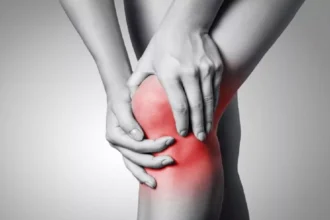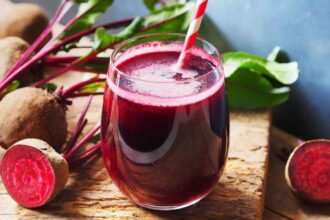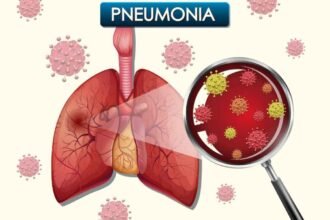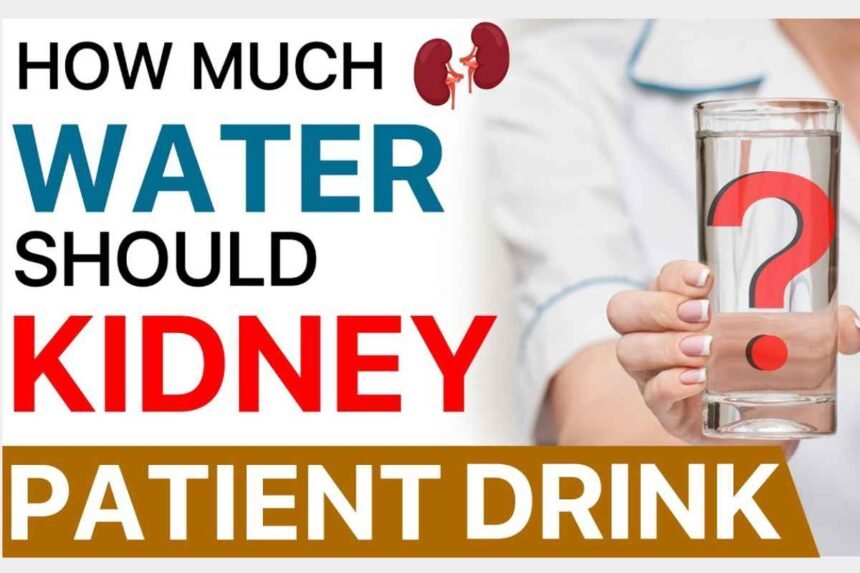When managing kidney disease, one crucial aspect is maintaining proper hydration. However, determining the right amount of water to drink can be challenging, as kidney function affects fluid balance in the body. In this article, we’ll delve into the specifics of hydration for individuals with kidney disease, addressing concerns and providing actionable advice.
Thirst is less in chilly climate. Lack of water in the body isn’t recognized because of low temperature.It very well might be cold outside however because of absence of water issues start in the body. At the point when an individual doesn’t hydrate, his body responds in more than one way.
Additionally many sorts of changes are found in the body. For the body to work appropriately, keeping a sufficient measure of water in the body is significant. Today we have Dr. Jan Jahan. Gain from R Achal what is the job of water in the body and what it means for the working of the body.
- Advertisement -
How much water should I drink if I have kidney disease ?
Drying out:
The most prompt impact of not drinking sufficient water is drying out. At the point when lack of hydration happens, the body loses more water. Because of which the body needs electrolytes and many body capabilities are not done as expected. In gentle lack of hydration, side effects incorporate dry mouth, while in extreme cases, side effects incorporate unsteadiness, swooning, disarray, and expanded pulse.
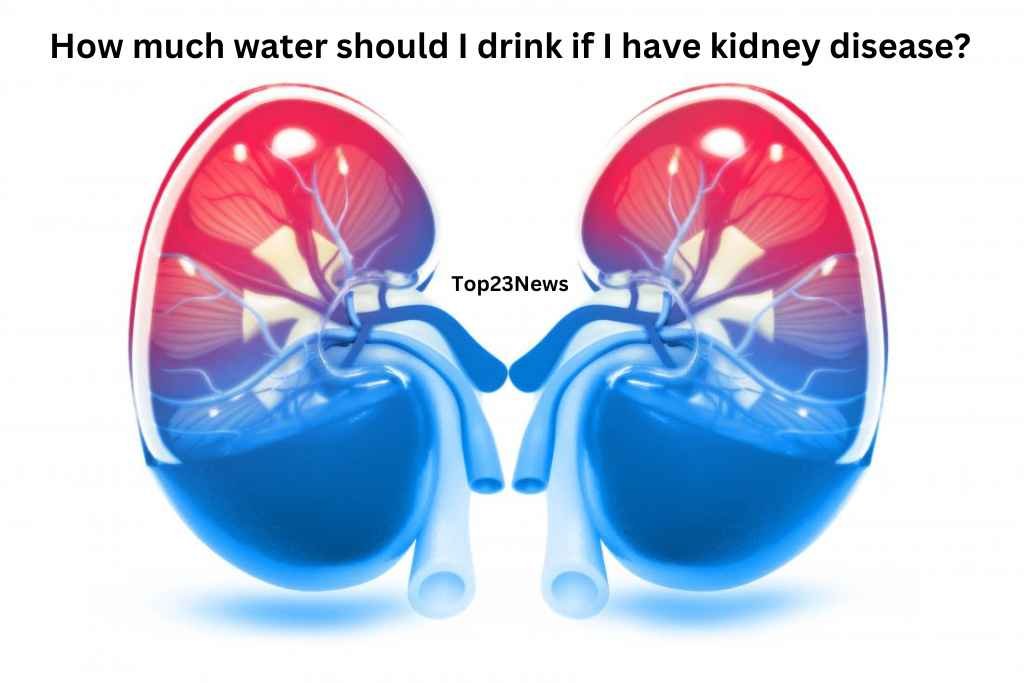
How much water should I drink if I have kidney disease?
Diminished center around work and expanded disarray
Indeed, even in gentle lack of hydration, an individual’s mind doesn’t work as expected at the degree of cognizance. His mind-set is continually evolving. Research has found that lack of hydration decreases fixation and influences memory.
Sensations of uneasiness and weakness increment. As a matter of fact, because of absence of water in the body, blood stream to the mind dials back, which influences the cerebrum’s capacity to work.
Quick Exhaustion
Because of absence of water in the body, an individual can’t accomplish any work without any problem. This influences actual execution. The body needs more water particularly during exercises and actual effort. Because of absence of water in the body, blood volume diminishes which prompts muscle harm.
Oxygen and supplements don’t arrive at the cells appropriately. This diminishes endurance, strength and athletic execution. Parchedness additionally builds the gamble of muscle cramps, heat fatigue and heatstroke during actual effort.
Stomach related messes
Water keeps the body hydrated as well as assumes a significant part in processing food. Water keeps up with stomach wellbeing. Drinking less water can prompt issues like obstruction and acid reflux.
Water helps flush out squander from the stomach and keep up with smooth working of the stomach. While perhaps insufficient water is drunk, it becomes challenging to pass stools and pee and one experiences numerous stomach related issues including gastric and ulcers.
That is the reason wellbeing specialists encourage everybody to hydrate consistently.
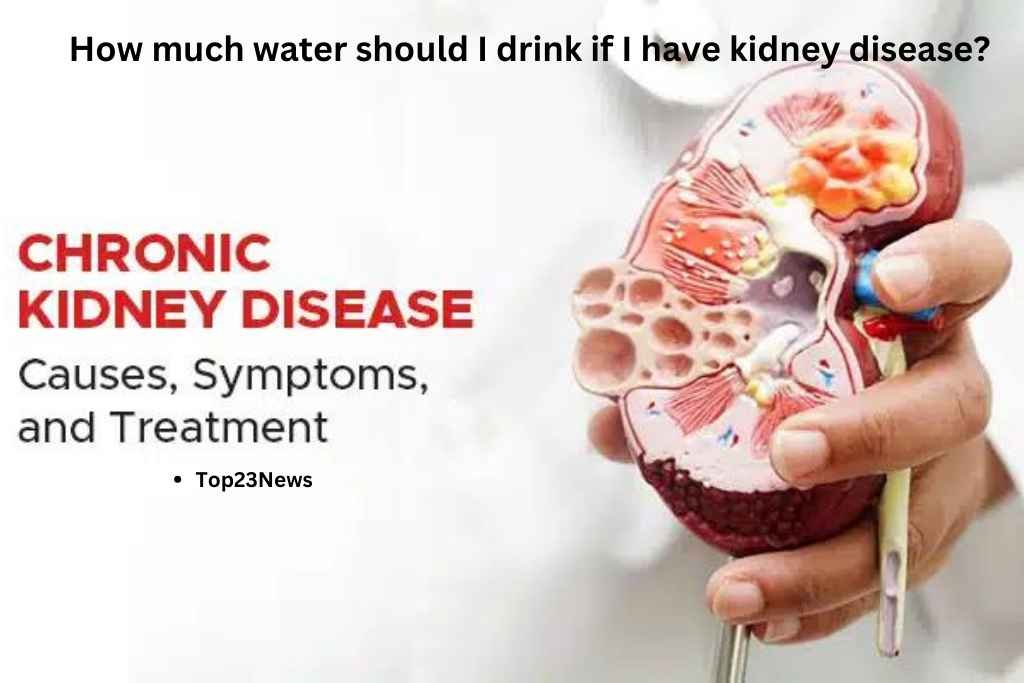
Understanding Kidney Disease and Hydratio
The Role of the Kidneys in Fluid Regulation
- The kidneys play a vital role in maintaining the body’s fluid balance by filtering waste and excess fluids from the blood, which are then excreted as urine.
- In individuals with kidney disease, this function is impaired, leading to potential complications such as fluid retention and electrolyte imbalances.
Impact of Kidney Disease on Fluid Intake
- For individuals with kidney disease, especially those in advanced stages, managing fluid intake becomes essential to prevent complications such as swelling (edema), high blood pressure, and electrolyte disturbances.
- The amount of fluid required varies based on factors like kidney function, stage of the disease, and other health conditions.
Low water causes UTI disease
Satisfactory water is required in the body for urinary parcel wellbeing and furthermore to forestall diseases. At the point when an individual hydrates, the pee becomes acidic. It causes aggravation in the bladder and urethra and expands the issue of urinary plot contamination for example UTI. Drinking increasingly more water flushes poisons from the body through pee and lessens the gamble of UTI.
Determining Optimal Fluid Intake
Consultation with Healthcare Provider – The optimal fluid intake for individuals with kidney disease is highly individualized and should be determined in consultation with a healthcare provider.
Your doctor or a renal dietitian can assess your specific situation and provide personalized recommendations tailored to your needs.
Considerations for Fluid Restriction – In some cases, healthcare providers may recommend restricting fluid intake, particularly for individuals with advanced kidney disease or those experiencing fluid retention.
This restriction aims to prevent fluid overload and its associated complications.
Monitoring Fluid Balance – Regular monitoring of fluid balance is essential for individuals with kidney disease.
This may involve tracking daily fluid intake and output, as well as monitoring indicators such as body weight, blood pressure, and symptoms of fluid retention.
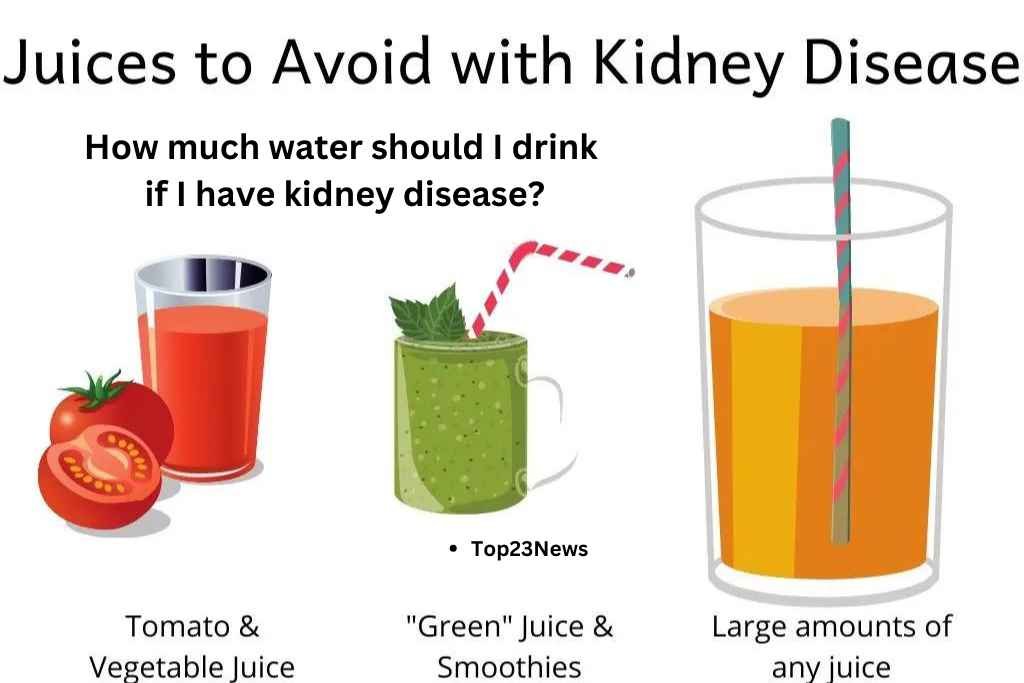
Tips for Hydration Management
Spread Fluid Intake Throughout the Day : – Rather than consuming large amounts of fluids at once, it’s beneficial to spread your fluid intake evenly throughout the day. This approach helps prevent sudden fluid shifts and minimizes strain on the kidneys.
Choose Hydrating Foods : – In addition to drinking water, incorporating hydrating foods into your diet can contribute to your overall fluid intake. Foods with high water content, such as fruits (e.g., watermelon, oranges) and vegetables (e.g., cucumber, lettuce), can be valuable additions to your meals and snacks.
Monitor Sodium Intake : – Sodium can affect fluid balance in the body, so it’s essential to monitor your sodium intake, especially if you have kidney disease. Limiting high-sodium foods and opting for low-sodium alternatives can help prevent fluid retention and high blood pressure.
Factors Influencing Fluid Intake
Various factors can influence fluid intake requirements for kidney disease patients, such as:
Stage of Kidney Disease: – Individuals in the early stages of kidney disease may have fewer restrictions on fluid intake compared to those in more advanced stages.
Medications: Certain medications, such as diuretics, can affect urine output and fluid balance.
Other Health Conditions : – Coexisting health conditions, such as heart disease or diabetes, may necessitate adjustments to fluid intake.
Frequently Asked Questions (FAQs)
Q: Can I drink other beverages besides water?
A: While water is the best choice for hydration, other beverages such as herbal tea, diluted fruit juice, and electrolyte drinks can also contribute to your fluid intake. However, be mindful of their sugar and sodium content.
Q: How can I tell if I’m drinking enough water?
A: Monitoring your urine output and its color can provide valuable insights into your hydration status. Pale yellow urine is generally indicative of adequate hydration, while dark-colored urine may signal dehydration.
Q: Should I limit my intake of fruits and vegetables due to their water content?
A: No, fruits and vegetables are valuable sources of hydration and essential nutrients. However, if you have specific dietary restrictions or concerns, consult your healthcare provider or dietitian for personalized advice.
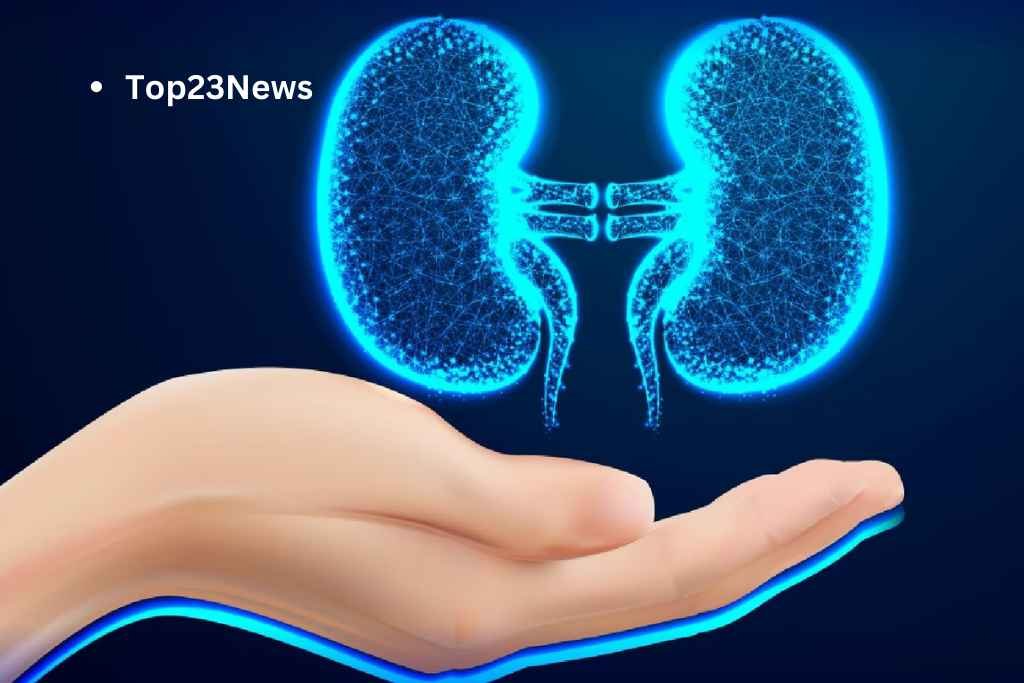
Conclusion
Proper hydration is crucial for individuals with kidney disease to maintain overall health and manage potential complications. By working closely with healthcare providers, monitoring fluid intake, and adopting healthy hydration habits, individuals can optimize their well-being and quality of life despite the challenges posed by kidney disease. Remember to consult your healthcare team for personalized recommendations tailored to your specific needs and circumstances.





